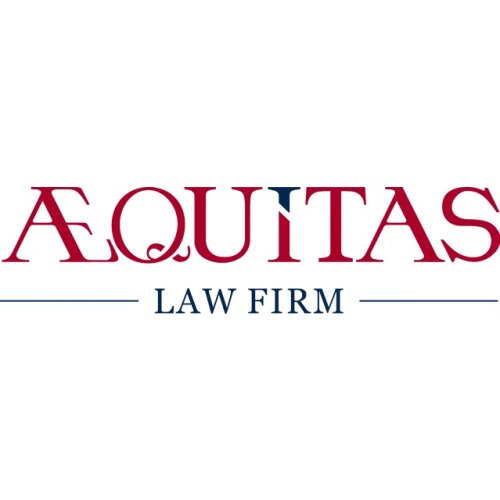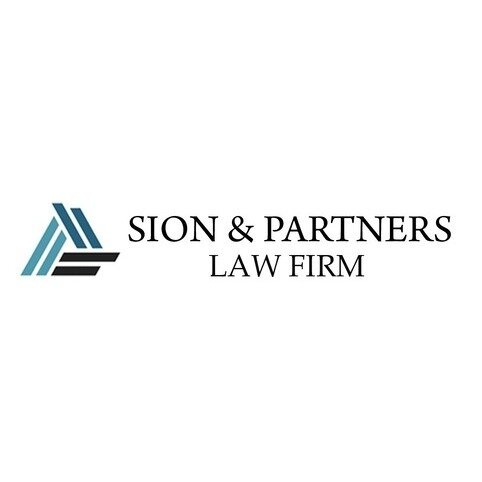Best Restructuring & Insolvency Lawyers in Kazakhstan
Share your needs with us, get contacted by law firms.
Free. Takes 2 min.
Or refine your search by selecting a city:
List of the best lawyers in Kazakhstan
About Restructuring & Insolvency Law in Kazakhstan
Restructuring and insolvency law in Kazakhstan is a specialized legal field focusing on resolving financial difficulties faced by individuals and companies. The legislation aims to allow businesses and individuals to restructure their debts when struggling financially and, where recovery is not feasible, to ensure an orderly insolvency process. The legal framework is designed to protect creditors' rights while also giving honest debtors a fair opportunity for recovery. In Kazakhstan, the procedures and rules governing restructuring and insolvency are mainly defined by the Civil Code, the Law on Rehabilitation and Bankruptcy, and related government regulations.
Why You May Need a Lawyer
Engaging a lawyer is critical when dealing with restructuring or insolvency matters in Kazakhstan for several reasons. Some common situations where legal expertise is required include:
- If you are a business owner facing financial distress and want to explore restructuring options to avoid bankruptcy.
- If your company is already insolvent and may need to initiate bankruptcy proceedings formally.
- If you are a creditor seeking to recover debts from an insolvent debtor.
- If you want to protect your property rights or contest claims during insolvency proceedings.
- If you are an individual affected by debt and need advice on personal bankruptcy or debt restructuring.
Lawyers specializing in restructuring and insolvency can help you navigate the complex legal procedures, communicate with creditors, file necessary documentation, and represent your interests in court and negotiations. Their guidance can be crucial to securing the best possible outcome in a challenging financial situation.
Local Laws Overview
The legislative environment surrounding restructuring and insolvency in Kazakhstan is primarily governed by several key laws:
- The Law on Rehabilitation and Bankruptcy: This law details the main insolvency procedures for both legal entities and individuals. It specifies voluntary and involuntary bankruptcy, rehabilitation, liquidation, and related measures.
- Civil Code: The Civil Code sets out the fundamental principles related to obligations, property, claims, and liabilities, which play a role in insolvency.
- Tax Code: Contains provisions about the treatment of debts and liabilities during insolvency processes.
Some important aspects of Kazakhstan's restructuring and insolvency law include:
- Both legal entities and individuals can initiate bankruptcy and restructuring procedures.
- The law distinguishes between rehabilitation (restructuring aimed at business recovery) and bankruptcy (liquidation of assets to satisfy creditors).
- Strict timelines and procedures must be followed when filing for bankruptcy or rehabilitation, with mandatory court oversight.
- Debtors and creditors have specific rights and obligations during insolvency proceedings.
- Preferential transactions and attempts to hide assets before insolvency can be challenged and reversed during proceedings.
Understanding these local laws is essential, as navigation errors can impact your legal rights and the financial outcomes of the procedure.
Frequently Asked Questions
What is the difference between rehabilitation and bankruptcy in Kazakhstan?
Rehabilitation is a legal process aimed at restoring the solvency of a debtor through debt restructuring, business reorganization, or other measures. It is designed to help businesses continue operating. Bankruptcy, on the other hand, is the formal liquidation of a debtor's assets to pay off creditors when financial recovery is not feasible.
Who can initiate bankruptcy proceedings?
Both creditors and the debtor can initiate bankruptcy proceedings. Creditors may do so if the debtor fails to fulfill financial obligations, while debtors themselves can apply if they are unable to meet their debts.
Can individuals declare bankruptcy in Kazakhstan?
Yes, individuals are allowed to declare bankruptcy under the law, subject to specific requirements and limitations. There are separate procedures for individuals and legal entities.
How long does the insolvency process take?
The duration varies depending on the complexity of the case, the number of creditors, and whether the process is a rehabilitation or bankruptcy. It may take several months to several years to complete.
What are the main steps in the insolvency process?
The typical process includes submitting a petition to court, appointment of an insolvency manager, notification of creditors, asset assessment, claims registration, and final decisions regarding restructuring or liquidation.
Are directors or owners personally liable for company debts?
Generally, liability is limited to the assets of the company. However, in cases of intentional wrongdoing, fraud, or where the separation between company and personal interests is not maintained, personal liability may arise.
What happens to employees during bankruptcy?
Employment contracts may be terminated, but Kazakhstan law requires that employees' claims for unpaid wages are treated as a priority during the distribution of assets.
Can creditors challenge transactions made before bankruptcy?
Yes, creditors or the insolvency manager can challenge and seek reversal of transactions that were made to defraud creditors or preferentially benefit certain parties prior to the insolvency filing.
Is it possible to restructure debts without court involvement?
Out-of-court settlements and voluntary restructuring agreements are possible and sometimes preferred. However, to be legally binding and protected from all claims, court approval may still be necessary.
Do foreign creditors have the same rights as local creditors?
Foreign creditors generally have the same rights as local creditors during insolvency proceedings in Kazakhstan, subject to applicable treaties and recognition of foreign judgments.
Additional Resources
If you need further assistance or information, consider consulting the following resources in Kazakhstan:
- Ministry of Justice of the Republic of Kazakhstan - Responsible for oversight of insolvency proceedings and maintaining the bankruptcy register.
- Government for Citizens State Corporation - Offers support with submitting documents and navigating public services related to restructuring and insolvency.
- Kazakhstan Association of Insolvency Managers - Provides directories and resources for finding qualified insolvency professionals.
- Local bar associations and legal clinics - Many offer free or subsidized legal consultations for individuals and small businesses.
- Court websites - Offer information on court procedures, schedules, and public insolvency hearings.
Next Steps
If you are facing financial distress or are considering restructuring or insolvency proceedings in Kazakhstan, here is how you can proceed:
- Assess your financial situation carefully to understand the severity and urgency of the matter.
- Gather all relevant documentation, including financial statements, debt contracts, asset lists, and correspondence with creditors.
- Contact a lawyer specializing in restructuring and insolvency to receive an initial assessment of your case and your options.
- Consider both in-court and out-of-court solutions in consultation with your legal advisor.
- If needed, your lawyer can guide you through the formal procedures, help draft and submit petitions, communicate with creditors, and represent you in court.
- Stay informed and participate actively throughout the process to ensure your rights and interests are protected.
Restructuring and insolvency law in Kazakhstan can be complex, but with timely legal assistance and proper preparation, it is possible to resolve financial challenges effectively.
Lawzana helps you find the best lawyers and law firms in Kazakhstan through a curated and pre-screened list of qualified legal professionals. Our platform offers rankings and detailed profiles of attorneys and law firms, allowing you to compare based on practice areas, including Restructuring & Insolvency, experience, and client feedback.
Each profile includes a description of the firm's areas of practice, client reviews, team members and partners, year of establishment, spoken languages, office locations, contact information, social media presence, and any published articles or resources. Most firms on our platform speak English and are experienced in both local and international legal matters.
Get a quote from top-rated law firms in Kazakhstan — quickly, securely, and without unnecessary hassle.
Disclaimer:
The information provided on this page is for general informational purposes only and does not constitute legal advice. While we strive to ensure the accuracy and relevance of the content, legal information may change over time, and interpretations of the law can vary. You should always consult with a qualified legal professional for advice specific to your situation.
We disclaim all liability for actions taken or not taken based on the content of this page. If you believe any information is incorrect or outdated, please contact us, and we will review and update it where appropriate.
Browse restructuring & insolvency law firms by city in Kazakhstan
Refine your search by selecting a city.











